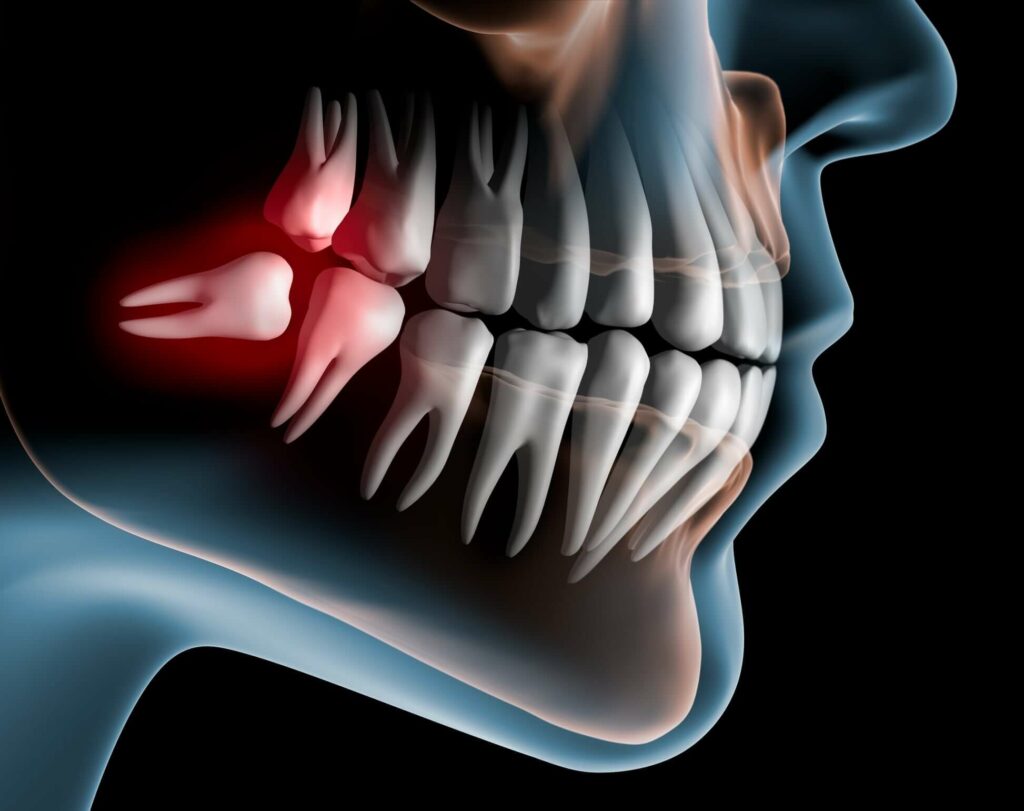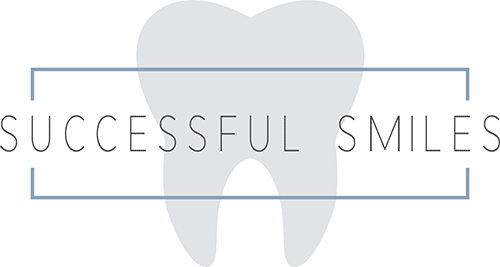Wisdom Teeth Removal
Wisdom teeth are the third molars in the very back of your mouth. They don’t always need to be removed, but they can cause problems if they are not growing in properly. We provide advanced state-of-the-art oral surgery and wisdom teeth removal. If you’re struggling with your wisdom teeth, please call us for a free consultation.
Wisdom Teeth Removal
Wisdom teeth are the final set of molars. They come in anywhere between the ages of 15 to 25 and are known to cause issues with many patients’ oral health. We can visually examine your wisdom teeth (if they have already erupted) or use x-ray imaging to assess if your wisdom teeth need to be removed.
Having your wisdom teeth extracted may seem like a rite of passage, but that’s not always the case. Depending on the shape of your mouth, size of teeth, and the position of your third molars, a wisdom teeth removal procedure is determined on a case-by-case basis. Proactive wisdom tooth removal can help to reduce the risk of problems such as crowded teeth, TMJ problems, infection, tooth decay, and damage to adjacent teeth.
Due to their position in the bone and against adjacent teeth, wisdom teeth can harm the healthy teeth next to them. Additionally, third molars are quite difficult to keep clean. So even if you have generally good oral hygiene, it’s possible that your wisdom teeth may develop an infection. Instead of treating them with gum infection therapy or a filling, it’s typically the standard of care to have the teeth removed for proactive purposes.

-
How do I know if my wisdom teeth need removed?
While every patient is different, there are some common signs that indicate the need to have your wisdom teeth removed. These signs include:
- Impaction, i.e., if the tooth is stuck under the gums or is completely hidden. If wisdom teeth aren’t able to emerge normally, they can become trapped within your jaw which can result in infection or cause a cyst that can damage other teeth or roots.
- Changing bite alignment—wisdom teeth can grow at various angles in the jaw, sometimes horizontally, this can cause a change in your bite alignment.
- Crowding or damage to existing teeth caused by wisdom teeth not having enough room to come in properly.
- Emerging only partially—if your wisdom teeth are only partially emerged through the gums it can cause a magnet for bacteria that can cause gum disease and oral infection.
Many dentists recommend removing wisdom teeth at an early age, before the roots and bone are fully formed and when recovery is faster.
-
How do I relieve wisdom tooth pain?
Wisdom teeth generally come in between ages 17 and 25. As they grow up through your jawbone and begin to break through your gum line, they may become inflamed or bleed. These occurrences could cause headaches or tooth pain. Below are some remedies to relieve wisdom tooth pain:
- Rinse with saltwater
- Use peppermint essential oils or clover oil to soothe pain
- Take aspirin or an over the counter pain reliever
- Apply an ice pack or heating pad to your cheeks
-
What is an impacted wisdom tooth?
When a wisdom tooth doesn’t have enough room to come in normally, it is considered an impacted wisdom tooth. There are several degrees of impacted wisdom teeth depending on where the teeth lie within the jaw. Soft tissue impaction occurs when the crown of the tooth has penetrated through the bone, but the gum is still covering part of the tooth. When the tooth has partially erupted, but a part of the tooth remains submerged in the jawbone, this is considered partially bony impaction. Complete bony impaction occurs when the tooth is entirely encased by jawbone.
More Questions?
If you have more questions about wisdom teeth removal and the procedures used by Successful Smiles, please contact our office and we will be happy to discuss further.
